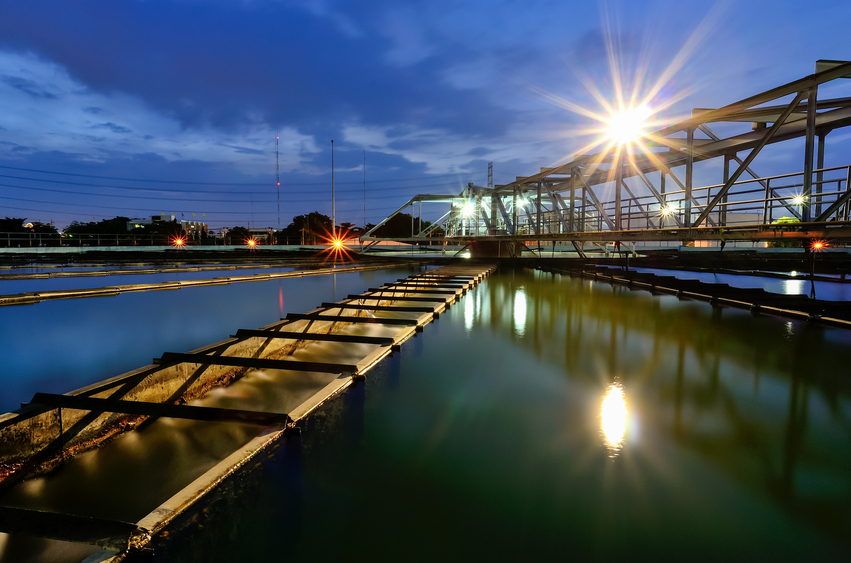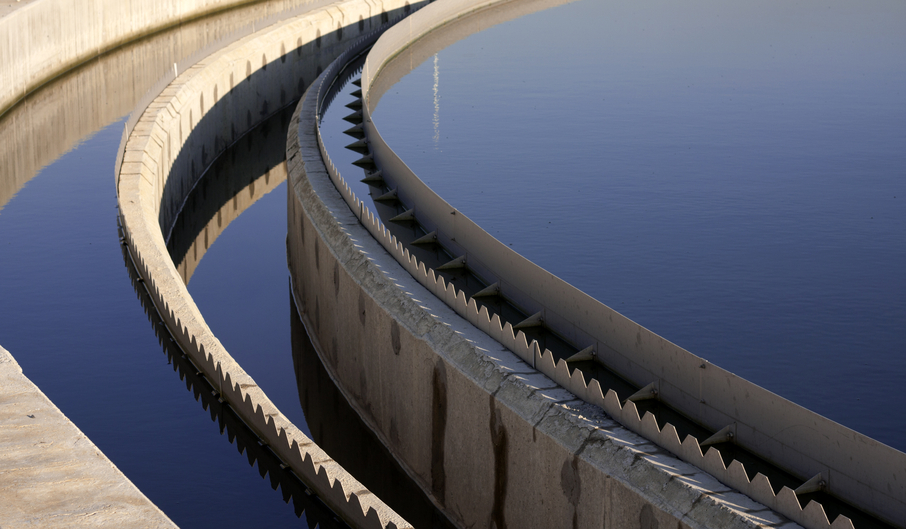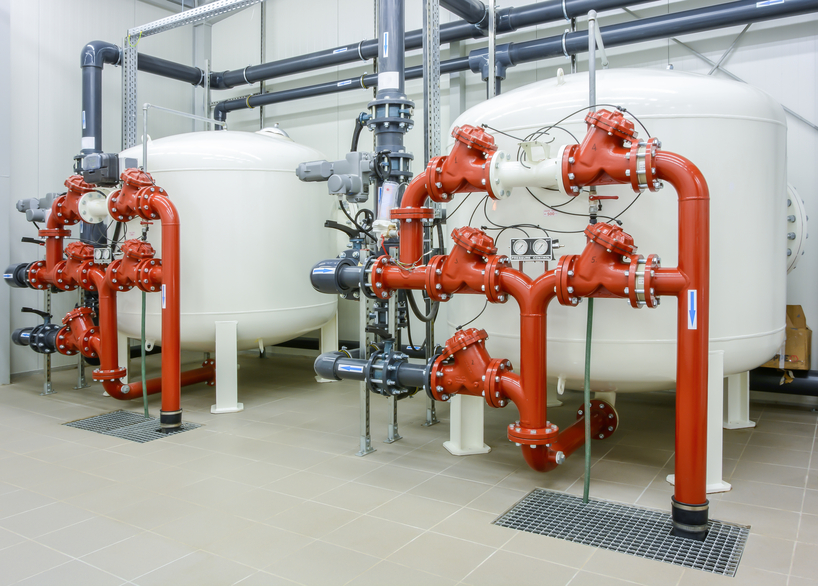Pennsylvania Wastewater and Ethics 24 PDH Discount Package 3
Force Main Rehabilitation (C08-009)
Primer for Municipal Wastewater Treatment Systems (C03-033)
Using Combined Heat and Power at Wastewater Treatment Facilities (R04-007)
Water Treatment and Purification (H05-004)
General Principles of Engineering Ethics (LE2-016)

This online engineering PDH course describes how onsite wastewater treatment systems (OWTS) have evolved throughout the years along with changing regulations. It also discusses current uses and types (performance-based vs. prescriptive requirements) of OWTS as well as the management program problems associated with such systems. Finally, this course presents initiatives taken to improve onsite system treatment and management.
Onsite wastewater treatment systems have evolved from the pit privies used widely throughout history to installations capable of producing a disinfected effluent that is fit for human consumption. Although achieving such a level of effluent quality is seldom necessary, the ability of onsite systems to remove settleable solids, floatable grease and scum, nutrients, and pathogens from wastewater discharges defines their importance in protecting human health and environmental resources. In the modern era, the typical onsite system has consisted primarily of a septic tank and a soil absorption field, also known as a subsurface wastewater infiltration system, or SWIS.
This 2 PDH online course is applicable to civil and environmental engineers, as well as design and construction personnel involved with the design and installation of onsite wastewater treatment systems.
This PE continuing education course is intended to provide you with the following specific knowledge and skills:
- Regulation of onsite wastewater treatment systems
- Onsite wastewater treatment system use, distribution, and failure rate
- Problems with existing onsite wastewater management programs
- Performance-based management of onsite wastewater treatment systems
- Coordinating onsite system management with watershed protection efforts
- USEPA initiatives to improve onsite system treatment and management
In this professional engineering CEU course, you need to review Chapter 1 of the EPA Onsite Wastewater Treatment Systems Manual, EPA/625/R-00/008, "Background Use of Onsite Wastewater Treatment Systems".
Upon successful completion of the quiz, print your Certificate of Completion instantly. (Note: if you are paying by check or money order, you will be able to print it after we receive your payment.) For your convenience, we will also email it to you. Please note that you can log in to your account at any time to access and print your Certificate of Completion.

This online engineerng PDH course presents the characteristics of force main systems, as well as force main system selection, design, operation and maintenance.
Force mains that carry sewage flows under pressure represent a special set of challenges for sewer rehabilitation. A rupture of a sewer force main could release millions of gallons of raw sewage into the environment posing significant health risks to the general public and significant impacts to the environment. As some of the newer rehabilitation technologies develop a positive track record of use in sewer force mains and confidence in their design approach and installation process strengthens, more utilities are willing to consider these technologies as potential renewal solutions.
This 8 PDH online course is applicable to engineers involved with the design, construction, operation, maintenance, and/or rehabilitation of sewer force mains.
This PE continuing education course is intended to provide you with the following specific knowledge and skills:
- Introduction to force mains
- Understanding the characteristics of force main systems
- Understanding the renewal practices and technologies for force main systems
- Considerations and methods for technology selection considerations
- Considerations and methods force main system design and QA/QC requirements
- Considerations and methods for operation and maintenance of force main systems
In this professional engineering CEU course, you will need to review the EPA publication "State of Technology Report - Force Main Rehabilitation", EPA/600/R-10/044 - March 2010.
Upon successful completion of the quiz, print your Certificate of Completion instantly. (Note: if you are paying by check or money order, you will be able to print it after we receive your payment.) For your convenience, we will also email it to you. Please note that you can log in to your account at any time to access and print your Certificate of Completion.

This online engineering PDH course provides an overview of the need for and characteristics of municipal wastewater treatment systems. Various types of pollutants are described. Primary, secondary, and advanced treatment processes are discussed. Issues of disposal of wastewater residuals and biosolids are presented. The discussion is extended to decentralized systems as well. Technical terms are clearly defined and explained.
This 3 PDH online course is intended for civil, mechanical, and construction engineers who need a basic overview of municipal wastewater treatment systems.
This PE continuing education course is intended to provide you with the following specific knowledge and skills:
- Understanding the Clean Water Act requirements for wastewater treatment
- Understanding the need for wastewater treatment
- Learning about centralized collection
- Familiarizing with the types of pollutants
- Learning about the advanced methods of primary and secondary treatment
- Learning about disinfection through the use of chlorine, ozone and ultraviolet radiation
- Learning about the use or disposal of wastewater residuals and biosolids
- Understanding the management of onsite/decentralized wastewater systems
In this professional engineering CEU course, you need to review the U.S. Environmental Protection Agency publication titled, "Primer for Municipal Wastewater Treatment System", EPA 832-R-04-001, dated September 2004.
Upon successful completion of the quiz, print your Certificate of Completion instantly. (Note: if you are paying by check or money order, you will be able to print it after we receive your payment.) For your convenience, we will also email it to you. Please note that you can log in to your account at any time to access and print your Certificate of Completion.

This online engineering PDH course describes the technical and economic potential for introducing combined heat and power (CHP) systems to wastewater treatment facilities (WWTFs), especially smaller WWTFs with influent flow rates of 1 to 5 MGD. The course also presents operational observations obtained through interviews with WWTF operators who have employed CHP.
Some of the key findings given in the course are that 1) CHP is a reliable, cost-effective option for WWTFs that have, or are planning to install, anaerobic digesters; 2) while many WWTFs have implemented CHP, the potential still exists to use more CHP, based on technical and economic benefits; 3) on a national scale, the technical potential for additional CHP at WWTFs is over 400 MW of biogas-based electricity generating capacity and approximately 38,000 MMBtu/day of thermal energy; and 4) translating CHP potential into actual successes requires an understanding of operational realities.
This 4 PDH online course is intended for engineers working as CHP project developers, WWTF operators and state and local government policy makers.
This PE continuing education course is intended to provide you with the following specific knowledge and skills:
- Overview of CHP and its benefits at WWTFs
- Market for WWTFs with CHP
- Technical potential for CHP at WWTFs
- Economic potential for CHP at WWTFs
- First-hand observations gathered through interviews of WWTF operators regarding the benefits and challenges of CHP
In this professional engineering CEU course, you need to review the course document titled, “Using Combined Heat and Power at Wastewater Treatment Facilities” which is based on the U.S. Environmental Protection Agency document, “Opportunities for Combined Heat & Power at Wastewater Treatment Plants: Market Analysis and Lessons from the Field,” produced by the Environmental Protection Agency Combined Heat and Power Partnership, October, 2011.
Once you complete your course review, you need to take a multiple-choice quiz consisting of twenty five (25) questions to earn 5 PDH credits. The quiz will be based on this EPA publication.
Upon successful completion of the quiz, print your Certificate of Completion instantly. (Note: if you are paying by check or money order, you will be able to print it after we receive your payment.) For your convenience, we will also email it to you. Please note that you can log in to your account at any time to access and print your Certificate of Completion.

This online engineering PDH course provides an overview of water treatment and purification.
Water is the most important substance on earth. As an engineer, you might be responsible for ensuring that an adequate supply of safe water is available for domestic, fire protection, and other uses. In meeting this responsibility, you must consider several factors, such as water source selection, ways to develop the water source, contaminants you may encounter, and methods you can use to remove them.
In this course, we will discuss the selection of a good water source, how to test it, and how to treat it so that it is safe for consumption. We will also explore ways to detect and treat water that has been contaminated with chemical, biological, or radiological agents. Lastly, we will talk about the different types of water treatment equipment and their processes.
This 5 PDH online course is applicable to chemical, civil, mechanical and environmental engineers and other professionals who are interested in gaining a better understanding of water treatment and purification processes.
This PE continuing education course is intended to provide you with the following specific knowledge and skills:
- Familiarizing with the requirements for water source selection
- Learning about the development criteria for water sources
- Understanding the results and testing procedures for water contamination
- Gaining an overview of the different types of water treatment equipment
Upon successful completion of the quiz, print your Certificate of Completion instantly. (Note: if you are paying by check or money order, you will be able to print it after we receive your payment.) For your convenience, we will also email it to you. Please note that you can log in to your account at any time to access and print your Certificate of Completion.

This online engineering PDH course presents the principles of engineering ethics that every engineer is expected to live by when practicing their profession.
Engineering ethics is (1) the study of moral issues and decisions confronting individuals and organizations involved in engineering and (2) the study of related questions about moral conduct, character, ideals and relationships of peoples and organizations involved in technological development (Martin and Schinzinger, Ethics in Engineering).
This course describes the fundamental legal concepts with which very engineer should be familiar. It also presents unique disciplinary case studies selected from across the nation, as well as hypothetical ethical challenges that demonstrate how difficult it can be to apply the code of ethics for engineers.
This 2 PDH online course is applicable to all professional engineers who are either required to fulfill 2 PDH in engineering ethics or are interested in broadening their understanding of what it means to practice and uphold the honor and integrity of their engineering profession while holding the utmost safety, health, and welfare of the public.
This PE continuing education course is intended to provide you with the following specific knowledge and skills:
- Understanding the common definition of ethics regarding engineering
- Learning about the important principles of the engineer’s professional responsibility
- Learning the do’s and don’ts through several ethical and disciplinary cases
- Understanding what it means to practise and uphold the honor and integrity of the engineering profession
Upon successful completion of the quiz, print your Certificate of Completion instantly. (Note: if you are paying by check or money order, you will be able to print it after we receive your payment.) For your convenience, we will also email it to you. Please note that you can log in to your account at any time to access and print your Certificate of Completion.